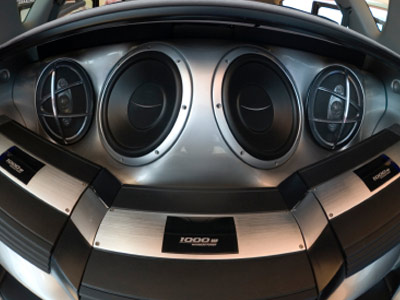Head Unit
The head unit refers to the main device that serves as the source of the sound or simply the radio that is installed in the car’s dashboard. The unit has a radio receiver and tuner component that receives radio frequencies through an antenna. The tuner is used to select or adjust radio frequencies or broadcast bands. The unit has other components, such as a disc player that plays different types of disc formats, a preamplifier that sends sound signals to the speakers and an equalizer that shapes the sound. The radio unit has an interface for control over the unit’s different functions such as the volume and menu functions. The head unit is powered by the car’s electrical distribution system. Wires and cables also connect the head unit to all the other components in the audio system.
Amplifier
The radio unit is already equipped with a preamplifier. The preamplifier is built into the radio unit and prepares the electronic signal for further boosting. This built-in component also incorporates the equalizer and tone control. An audio amplifier, on the other hand, is a separate device from your head unit and is used to further increase the power and sound quality of the radio and drive the various speakers. If higher quality speakers are used in the car, the amplifier can send a higher power output to amplify the speakers resulting in better quality sound. The amplifier position in the audio system chain is between the head unit and the speakers.
Speakers
The speaker component receives an electronic signal from your head unit and amplifier and turns it into an actual sound. The speaker system consists of different types of speakers that produce different sound qualities. The tweeter produces high frequency sound; the woofer produces low frequency sound; the mid-range speaker produces a mid-frequency sound between the tweeter and the woofer, and the subwoofer produces the lowest frequency sound. The signal output can be shaped further by the head unit’s interface.
Capacitor
The capacitor provides the audio system with extra electrical power. A car’s upgraded audio system and its components demand adequate electrical energy to function properly. To avoid taking too much of the car’s electrical power, the capacitor can store extra energy to be used on demand without affecting the car’s electrical flow. The sound signal from the radio unit to all the other components will be disrupted if it does not have consistent power flow.
Auxiliary Input Device
Other components can be plugged into the head unit, like storage devices, portable audio players and disc changers. They are linked through inputs found behind or in front of the head unit or directly linked to the power amplifier.

How Does a Car Audio System Work?
by
Tags:

Leave a Reply